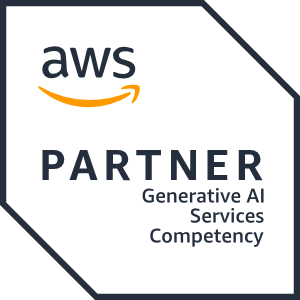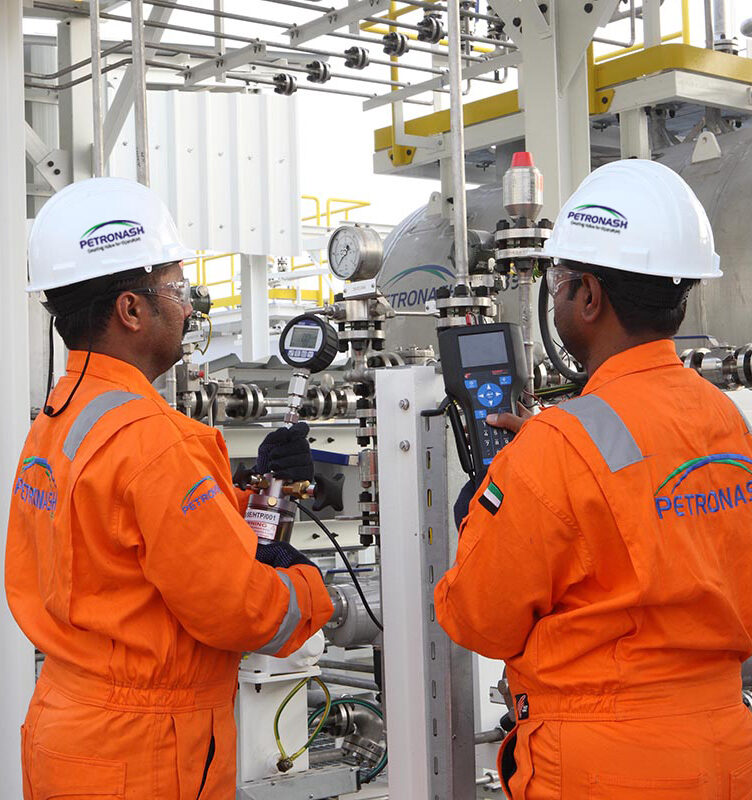- Support:+971 4 3364 840
- Email:[email protected]
- Locations:Dubai • Riyadh • Bangalore
Best Practices, Case Studies, Knowledge Bases, Blogs and more
Generative AI
Center of Excellence
Integra is a certified AWS Generative AI Competency partner, helping our customers adopt the best of GenAI to increase business productivity and stay ahead of the competition.

GenAI for Software Development Lifecycle (SDLC)
AWS Partners with competency in Generative AI (GenAI) like Integra Technologies, specialize in helping customers adopt and implement advanced GenAI solutions, leveraging the power of AWS services. Integra possess deep expertise in AI/ML technologies and understand how to design, build, and deploy scalable and secure GenAI applications tailored to specific business needs. By working with us, customers can streamline their journey to integrating AI into their workflows, benefiting from custom solutions like intelligent chatbots, content generation tools, and predictive analytics. This partnership enables faster time-to-market, improved operational efficiency, and enhanced innovation.
Customers also gain access to best practices, optimized AWS resource utilization, and ongoing support, ensuring cost-effective and impactful GenAI adoption. We have helped many customers in Dubai, Abu Dhabi, Sharjah, Ras Al Khaimah, and also in the Kingdom of Saudi Arabia, in Riyadh and Dammam to make use of AWS GenAI solutions to enhance business operations.

What is Generative AI (GenAI)?
Generative AI is a type of AI that can create new content and ideas, including conversations, stories, images, videos, and music. Like all AI, generative AI is powered by ML models—very large models that are pre-trained on vast amounts of data and commonly referred to as foundation models (FMs). Recent advancements in ML (specifically the invention of the transformer-based neural network architecture) have led to the rise of models that contain billions of parameters or variables. FMs can perform so many more tasks because they contain many parameters that make them capable of learning complex concepts.
The size and general-purpose nature of FMs make them different from traditional ML models, which typically perform specific tasks, like analyzing text for sentiment, classifying images, and forecasting trends.
To achieve each task, for each ML model, customers need to gather labeled data, train a model, and deploy that model. With foundation models, instead of gathering labeled data and training multiple models, you use the same pretrained FM to adapt several tasks. FMs can also be customized to perform domain-specific functions that are differentiating to their businesses, using only a small fraction of the data and compute required to train a model from scratch.
There are three reasons that explain foundational models’ success:
The transformer architecture: The transformer architecture is a type of neural network that is efficient, easy to scale, and parallelize, and can model interdependence between input and output data.
In-context learning: Showing potential on a range of applications, from text classification to translation and summarization, this new training paradigm provides pre-trained models with instructions for new tasks or just a few examples instead of training or fine-tuning models on labeled data. Because no additional data or training is needed and prompts are provided in natural language, models can be applied right out of the box
Emergent behaviors at scale: Growing model size and the use of increasingly large amounts of data have resulted in what is being termed as “emerging capabilities.” When models reach a critical size, they begin displaying capabilities not previously present.
Case Studies

Diglossia Middle East
Read how Integra helped Diglossia with AWS Generative AI solutions which helped improve student outcomes and measures literacy progress over time.

Data Inflexion
Read how Integra helped Data Inflexion, a startup specializing in creating libraries and tools for real estate and property listing website developers.